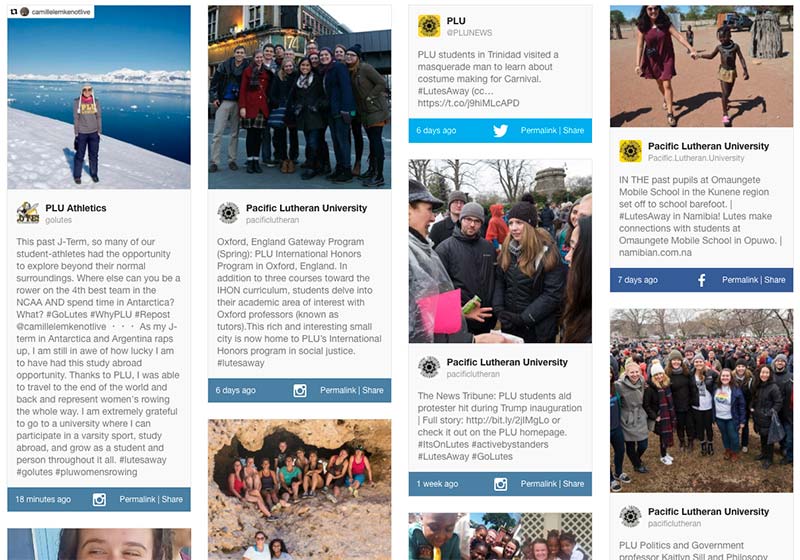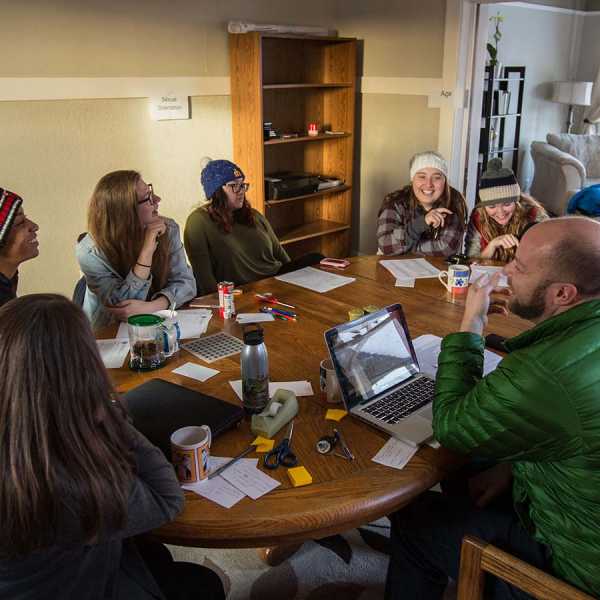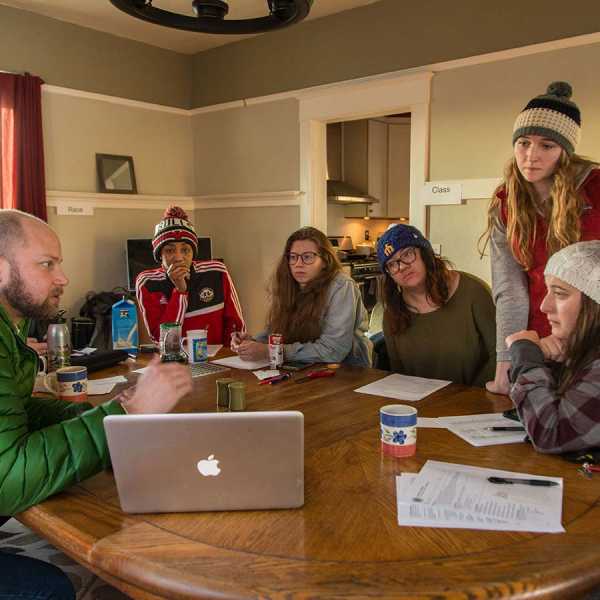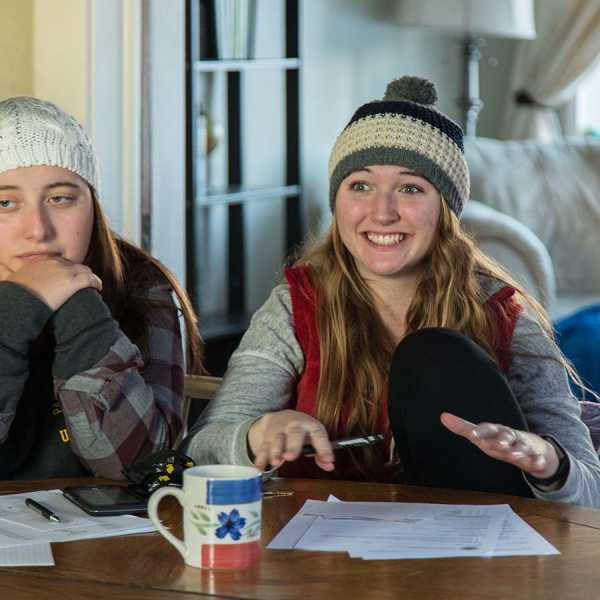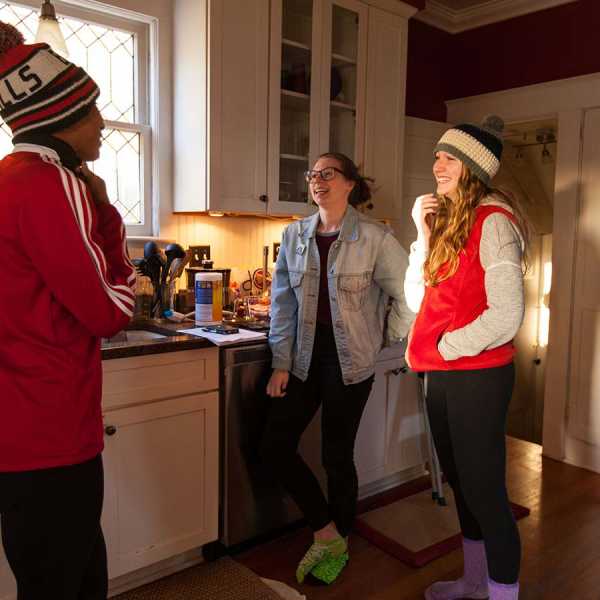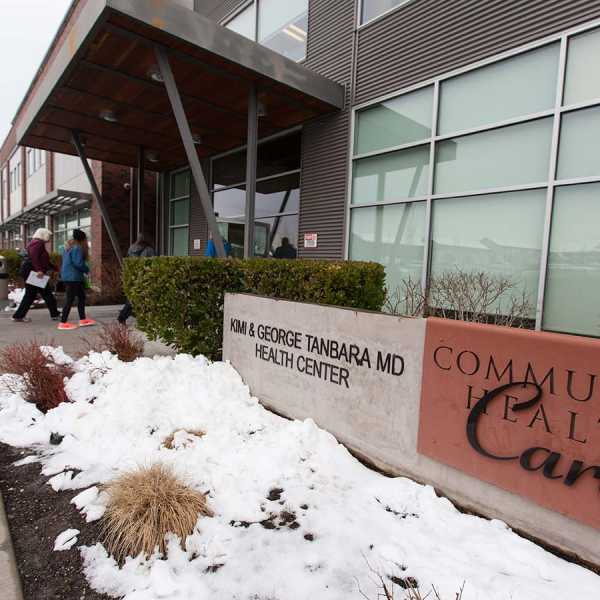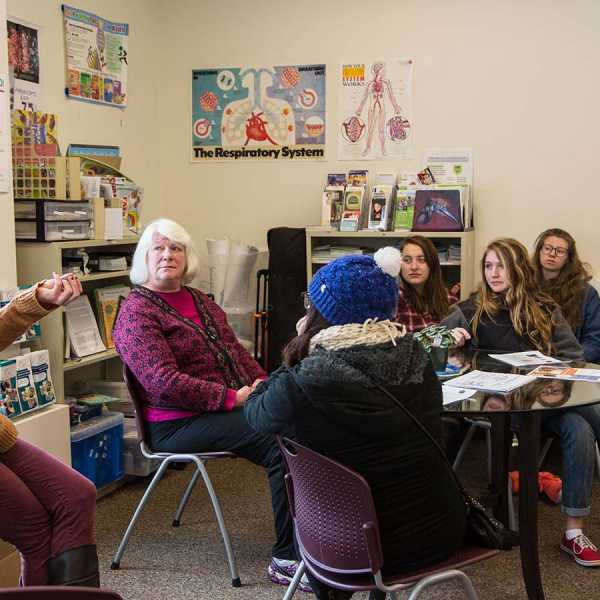TIES program offers study away experience in Tacoma’s Hilltop neighborhood
Before five Pacific Lutheran University students could finishing unpacking boxes in the house on South Grant Avenue in Tacoma’s Hilltop neighborhood, they were already learning about the new community they call home.
Christina Easley ’19 says she’s seen beautiful artwork along the downtown corridor while riding the bus that takes her to and from PLU’s campus.
“I had never noticed before,” she said.
That’s exactly what the Tacoma Immersion Experience Semester (TIES) program is challenging students to do — look at the community just outside PLU’s boundaries in new ways.
“It breaks all the rules,” Joel Zylstra said of the program, which launched this semester. (In a good way, he added). Zylstra’s the director of the Center for Community Engagement and Service, which houses the new program.
The study away experience, the newest Gateway program through the Wang Center for Global Education, is the result of three years of intensive planning. It started with an idea in the early 2000s to provide living and learning re-entry for students who study away and gain a rich new perspective.
In 2003, Zylstra said students coming back from the twin-island nation of Trinidad and Tobago struggled to acclimate back into campus culture.
“Everything felt trivial,” he said, adding that students wanted to pursue ways to apply the racial consciousness and diversity-minded skills they learned abroad here at home.
So, faculty members JoDee Keller, Elizabeth Brusco and Barbara Temple-Thurston started an immersive experience for students in the Salishan community, a diverse mixed-income neighborhood in Tacoma.
TIES is a continuation of the philosophy that launched the Salishan program — a service-learning, community-based study away experience in PLU’s backyard that focuses on diversity, sustainability and justice.
TIES offers PLU students the chance to live full-time in one of Tacoma’s most diverse neighborhoods for a semester. They take the bus, work internships with various community organizations, and learn about the humanities and how to apply them in practical ways.
Zylstra says the program is beneficial to students from all majors and backgrounds.
“We want to attract students with a commitment to (diversity, justice and sustainability) values,” he said. “If they don’t come with that, we hope they leave with it.”
This spring is the first time the class has been offered. All five students enrolled live in a four-bedroom house in Hilltop. “We all have different interests, but we’re all very like-minded,” Easley said of her classmates.
Eventually, the program will evolve to include about 12 students, Zylstra says. Once it’s fully fleshed out, students will take a class exclusively offered to the TIES group and two classes of their choice at off-campus locations, in addition to an internship or community-based research opportunity. (This year, students are participating in a slightly modified schedule to start.)
TACOMA, WASHINGTON
This program focuses on community partnerships and advocacy, place-based writing, Puget Sound industry and more.
Zylstra said the program offerings encourage students to stay connected to PLU, while keeping one foot off campus. “We want the pivot foot to be in the community,” he added.
TIES is Easley’s first study away experience. She said she appreciates all the opportunities PLU has to offer, but noted that staying at PLU all day every day was a challenge. “I was feeling a little squashed down,” she said. “I wanted to get off campus.”
The Hispanic studies and sociology double major from Seattle wants to go into immigration work. Just a few days into TIES, she says she’s already learned more about the Northwest Detention Center in Tacoma and immigration issues facing the city than she would have learned otherwise.
“I’m already aware of so many organizations I didn’t know existed,” said Easley, who is working at the Tacoma Community House this semester.
The Center for Community Engagement and Service serves as a foundation for the TIES program. Many of the organizations and local connections are built upon the work done within CCES. It epitomizes the Wang Center’s goal with Gateways — maintaining a strong, mutually beneficial relationship between the university and a community or region.
Rachel Haxtema, TIES program coordinator, says students gain just as much from learning about Tacoma as they do from learning about any place abroad.
While developing the program, organizers talked a lot about falling in love with Tacoma, something she hopes for TIES students learning about the City of Destiny.
“If you take the time to immerse yourself in that same way you do abroad, you can have the same experience,” Haxtema said.
Zylstra agreed, stressing that an immersive experience teaches students a lot no matter how far they travel.
“If you can learn how to examine and engage any community, it’s a transferrable set of skills,” he said. “It’s learning how to study communities.”


